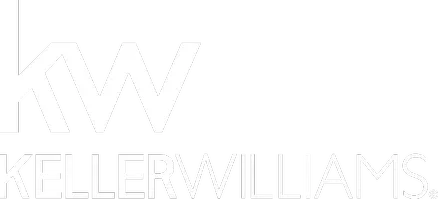

Mastering the Unknown: Your Essential Guide to Home Appraisals
Mastering the Unknown: Your Essential Guide to Home Appraisals Navigating the real estate world can be challenging, whether you’re a first-time homebuyer or an experienced investor expanding your portfolio. One part of the process that often leaves buyers feeling uncertain is the home appraisal. From understanding costs to what appraisers look for, here’s everything you need to approach this critical step with clarity and confidence. Can You Challenge a Home Appraisal? While it’s not common, it’s possible to request a review or even a change to an appraisal—but it requires a careful approach. Here’s what you should know: Provide New Information: If you think the appraisal missed key details, such as recent upgrades or sales data from comparable homes, you can submit this information to your lender and request reconsideration. Rebuttal Process: Most lenders have a process for submitting additional evidence or comps. However, significant changes to the appraised value are rare unless there is compelling new data. Second Appraisal: If you're not satisfied with the outcome, you can opt for a second appraisal, but be aware this can mean additional costs. Lenders usually rely on the first appraisal unless there’s a clear error. Who Pays for a Real Estate Appraisal? Understanding who covers the cost of an appraisal helps set expectations: Home Purchases: Buyers typically pay for the appraisal as part of their closing costs. Refinancing: Homeowners (borrowers) are responsible for the appraisal fee. Cash Purchases or Private Sales: In these cases, the responsibility can be negotiated between the buyer and seller, as appraisals are often optional. Knowing who pays for the appraisal can make budgeting during the buying or refinancing process easier. How Much Does a Home Appraisal Cost? The cost of an appraisal can vary based on several factors. Here’s a quick look: Average Cost: Most single-family home appraisals range between $300 to $600, though urban or high-demand areas may be higher. Complex Properties: If the property is unique or has extensive land, appraisals can exceed $1,000 due to the extra detail needed. Rush Appraisals: Need a fast turnaround? Some appraisers charge extra—usually an additional $100 or more—for expedited services. Understanding these costs upfront can help you plan better when purchasing or refinancing. Why Are Appraisals Important? Appraisals serve as a safeguard for both buyers and lenders, ensuring fairness in real estate transactions. Here’s why they’re critical: Fair Market Value: An unbiased appraisal ensures buyers don’t overpay and lenders don’t lend more than a property’s worth. Mandatory for Financing: Lenders require an appraisal to determine the amount they’re willing to finance. Negotiation Tool: If an appraisal comes in lower than the agreed sale price, it provides grounds for renegotiation, potentially leading to a price adjustment. Appraisals protect all parties involved and help ensure informed decisions. Where to Find a Qualified Home Appraiser Working with a licensed professional is essential. Here’s how to start: Lender-Ordered Appraisals: For most financed transactions, the lender arranges the appraisal. Local Appraisal Companies: For non-financed situations, such as cash sales or estate planning, you can hire local appraisal firms. Ensure they’re licensed and familiar with the area. Professional Directories: Organizations like the Appraisal Institute or the American Society of Appraisers provide directories to find certified appraisers. What Appraisers Look For Appraisers conduct thorough assessments to determine a property’s market value. Here’s what they focus on: Property Condition: The overall state of the home, including structural soundness and quality of materials. Size and Layout: Square footage, number of rooms, and functionality impact value. Comparable Sales: Recent sales of similar homes help establish a baseline value. Location: Proximity to schools, shopping, and other amenities affects desirability and value. Unique Features: Special elements, like a pool or modern kitchen, can boost value if they align with market demands. Understanding these factors can help you prepare for a favorable appraisal. Preparing for Your Home Appraisal To increase the chances of a favorable appraisal, consider taking the following steps: Tidy Up: A clean and well-maintained home creates a positive impression. Complete Minor Repairs: Fix any obvious issues, such as leaky faucets or chipped paint. Document Improvements: Provide a list of recent renovations or upgrades to highlight added value. Show Curb Appeal: First impressions matter, so enhance your home’s exterior by trimming the lawn, cleaning pathways, and adding simple landscaping touches. Common Appraisal Pitfalls and How to Avoid Them It’s important to be aware of common issues that can lead to a lower appraisal and how to mitigate them: Deferred Maintenance: Neglecting essential repairs can decrease your home’s value. Address issues before the appraiser’s visit. Overestimating Upgrades: Not all renovations provide a dollar-for-dollar return. Focus on improvements that are in line with neighborhood standards. Lack of Market Knowledge: Understand how recent comparable sales (comps) in your area affect your home’s value. Final Thoughts Navigating the home appraisal process doesn’t have to be daunting. By understanding what appraisers look for, knowing the associated costs, and preparing your home ahead of time, you can confidently take this step and safeguard your investment. Remember, a successful appraisal ensures you’re making sound financial choices, whether you’re buying, selling, or refinancing. If you have questions or need guidance from certified appraisers, don’t hesitate to reach out. We’re here to support you through every stage of your real estate journey.
Read More

Finding the Right Buyer's Agent: Your Key to a Smooth Homebuying Journey
Choosing the right buyer's agent can make all the difference in your homebuying experience. They'll be your trusted guide, advocate, and expert negotiator throughout the process, ensuring you find the perfect property and secure the best deal possible. Did you know She Moves Realty can help you find the perfect agent anywhere in the world? That's right, we have access to top agents in every market. We use the criteria below to vet every agent before we connect you with them, taking just one more task off your already full plate. Here are five essential qualities to look for in your ideal buyer's agent: 1. Local Market Expertise: Years of experience in your specific area are invaluable. They'll have a deep understanding of current trends, pricing dynamics, desirable neighborhoods, and hidden gems. A well-connected buyer's agent can provide you with access to a wide network of professionals, including lenders, inspectors, contractors, and attorneys. They can recommend trustworthy professionals who can assist you throughout the buying process, ensuring a smooth and stress-free experience. Having a reliable network of professionals at your disposal can save you time, money, and potential pitfalls. 2. Strong Communication and Negotiation Skills: Clear, consistent communication is crucial. You should feel comfortable reaching out with questions and concerns, and expect prompt, informative responses. An excellent negotiator can champion your interests, navigate complex paperwork and offers, and secure the best terms for your purchase. Observe their communication style during your initial meeting; do they actively listen and address your priorities? 3. Proven Track Record and Positive Client Testimonials: Check online reviews and testimonials from past clients, focusing on experiences similar to your own (first-time buyer, specific price range, etc.). Request references and follow up with them directly to gain a complete picture of their work ethic and effectiveness. Inquire about their sales volume and average selling price compared to the market average. 4. Resourcefulness and Technology Savvy: A resourceful agent can go the extra mile to find solutions, research properties with exceptional detail, and connect you with valuable services like lenders, inspectors, and legal professionals. Look for an agent who leverages technology efficiently to market properties, find listings, and streamline communication, keeping you informed every step of the way. 5. Professionalism and Personality Compatibility: Punctuality, responsiveness, and maintaining clear boundaries are key aspects of a professional relationship. Finding an agent you feel comfortable and confident with is essential. They should be patient, understanding, and genuinely invested in your goals. Pay attention to their personality during interactions; do you feel heard and respected? Remember: Finding the right buyer's agent is an investment in your peace of mind and ultimate success in the real estate market. Take your time, ask questions, trust your gut feeling, and choose someone who ticks all the boxes. With the right partner by your side, you'll be well on your way to finding your dream home and making the exciting step into homeownership a smooth and memorable journey.
Read More

A Guide to Closing Costs in the Greater Philadelphia Area
Congratulations! You've found your ideal home in the Greater Philadelphia region, a tapestry of vibrant cities and charming communities, each offering its own unique character. Whether it's the rich history of Doylestown, the artistic energy of Bristol, or the luxiours vibes of the Mainline, you're on the cusp of an exciting new chapter. But before you picture yourself basking in the glow of your fireplace or cheering on the Union with neighbors, there's one more vital step: understanding closing costs. Closing costs, sometimes nicknamed "hidden fees," can feel like a cryptic code to decipher. But fear not, future homeowner! This guide will demystify them, leaving you confident and prepared to navigate your closing with ease. Breaking Down the Bill: Think of closing costs as a collection of service fees and prepaid expenses associated with finalizing your real estate purchase. They can be broadly grouped into four categories: Loan Fees: Loan Origination Fee: This covers the lender's cost of processing and underwriting your mortgage. Appraisal Fee: An independent appraiser determines your home's market value, and their fee is included here. Credit Report Fee: The lender uses this to assess your credit history, and the cost is passed on to you. Third-Party Fees: Title Insurance: Protects you from any legal claims against the property's title. Home Inspections: A thorough inspection by a qualified professional is crucial for identifying any potential issues. Recording Fees: These cover the legal documentation and registration of the property transfer with the county. Prepaid Expenses: Homeowners Insurance: Protects your home against unforeseen events like fire or storms. Property Taxes: Prorated based on the remaining portion of the tax year. Mortgage Insurance: Required for loans with a down payment of less than 20%. Escrow Account: Some lenders may require an escrow account to hold funds for future property taxes and homeowners insurance premiums. Navigating the Cost Landscape: Closing costs can vary across the Greater Philadelphia region, typically ranging from 2% to 6% of the purchase price. While individual factors like specific neighborhoods and loan types influence the final figure, one key variable deserves mention: Philadelphia's transfer tax. Compared to surrounding counties, Philly levies a higher rate, potentially inflating your overall closing costs. But remember, knowledge is power! Here are some strategies to manage your closing costs: Shop around for lenders: Comparing loan offers from various lenders can uncover competitive fee structures and potential cost savings. Negotiate closing costs: In a buyer's market, you may be able to negotiate with the seller to share or even fully cover some closing costs. Explore closing cost credits: Some lenders offer programs that credit you for specific closing costs in exchange for a slightly higher interest rate. Consider gifts: With proper disclosure, you can use gifted funds from family or friends to help with closing costs. Increase your down payment: A larger down payment reduces the loan amount, leading to lower origination fees and other loan-related costs. Your Local Experts Matter: Navigating the intricacies of closing costs is much smoother with trusted guidance. Partnering with a local real estate agent and mortgage lender familiar with your chosen municipality is invaluable. They can interpret cost breakdowns, suggest negotiation strategies, and recommend reputable service providers. Unlocking Your Dream, One Step at a Time: Remember, closing costs are simply another stepping stone on your path to homeownership. By approaching them with informed planning and the right support, you can ensure a smooth transition and savor the excitement of settling into your new home. So, embrace the vibrant spirit of the region, channel your inner Ben Franklin, and unlock your dream home with confidence! This blog post is for informational purposes only and shouldn't be considered financial advice. Always consult with qualified professionals to discuss your specific closing cost needs and financial situation.
Read More
Categories
Recent Posts











